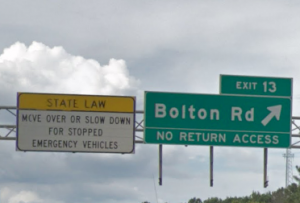
13-Year-Old Hit While Riding His Bike. (murray legal.com)
North Augusta News
A Sunday afternoon bike ride turned into a hospital visit for a young boy in Augusta. According to WRDW.com, “around 12:10 p.m. on Sunday, a 13-year-old boy was biking on 2nd Street and about to pull onto Duncan Road. A 2003 GMC SUV was driving south on Duncan Road when it hit the teen.” Per the news outlets, “[t]he teen was transported to a local hospital with non-life-threatening injuries.” The driver of the car was not injured.
It is unclear whether the driver will be facing charges.
Our Legal Take
As the details of this incident continue to develop, and if the motor vehicle driver is found to be at fault, the young victim’s parents may elect to file civil claims for his injuries. Based upon its experience and success handling cycling and pedestrian claims in Georgia, The Murray Law Firm suggests that the parents should retain an experienced personal injury firm to protect his interests and ensure an unbiased investigation. Photographs of the roadways involved and a review of surveillance footage from nearby businesses or properties, if any exists, will need to be performed immediately before any evidence is damaged or destroyed.
The Murray Law Firm has obtained over $100 million dollars in verdicts and settlements for its Clients, including for victims and their fanilies of Georgia cycling and pedestrian accidents such as this one. We represent our Clients on a contingency agreement, which generally means that no fees or payments are owed until and unless we recover. Anyone seeking further information or legal representation is encouraged to contact us via e-mail (click here) or by telephone at 706-494-2800 in Augusta or 404.842.1600 in Atlanta. Consultations are free and confidential.
CALL NOW: 706-494-2800 in Augusta or 404.842.1600 in Atlanta
Choosing the Right Attorney (CLICK HERE)
DISCLAIMERS: The information contained in this post is from secondary sources and may therefore contain inaccuracies. We will gladly correct or remove this post upon request. The material contained in this post is not intended to constitute legal advice. As each Client is unique, please contact us for a free consultation on your particular case. “Contingent attorneys’ fees” refers only to those fees charged by attorneys for their legal services. Such fees are not permitted in all types of cases. Court costs and other additional expenses of legal action usually must be paid by the client.
 Georgia Legal Report
Georgia Legal Report




